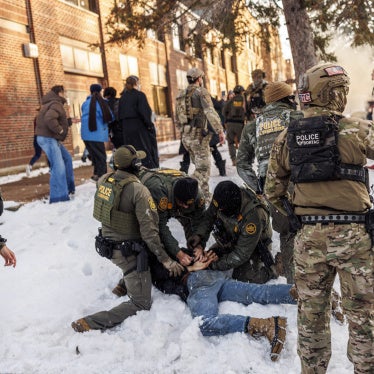When President George W. Bush joins the Summit of the Americas in Mexico on Jan. 12, he should reflect upon why good will toward the United States has diminished so dramatically in the region during his presidency.
A recent poll by Zogby International found that 87 percent of Latin American opinion-makers disapproved of Bush's policy in the region. Another, by Latinobarometro, found that nearly a third of Latin Americans had a negative image of the United States - a twofold increase since 2000.
This growing disenchantment is fueled largely by opposition to the war in Iraq, which may be the one issue that unites people across the political spectrum in Latin America today. Almost all the countries in the region refused to join the U.S.-led coalition. The two that held seats on the Security Council last March - Mexico and Chile - both withheld support for the resolution that would have authorized the invasion. Both were among the countries excluded from Pentagon contracts in Iraq.
Another source of discontent among Latin American officials has been U.S. opposition to the International Criminal Court - the one initiative for handling abusive tyrants like Saddam Hussein that does enjoy nearly universal approval in Latin America. The Bush administration has been aggressively pressing these governments to sign agreements that would prevent them from turning American suspects over to the court. It has cut off military aid and threatened to withhold humanitarian assistance to countries that refuse.
Many Latin American officials believe, correctly, that these agreements violate their international treaty obligations, as well as their domestic laws. They find themselves, as a result, forced to choose between their commitment to the rule of law and their relationships with the United States. And they report that the Bush administration has subjected them to "unbearable pressure" to choose the latter.
This is ironic given that the United States identifies the promotion of democracy and the rule of law as a top priority. In fact, at the last Summit of the Americas, in 2001, the Bush administration played an important role in elaborating an Inter-American Democratic Charter that commits governments to actively defend democracy in the region. Yet when this commitment was tested by an attempted coup in Venezuela the following year, the United States was the charter's only signatory that balked. Instead of condemning the coup, the Bush administration initially spoke out against the deposed president, Hugo Chávez, and only joined the chorus of condemnations when the de facto government was beginning to unravel.
Perhaps the most notorious example of the Bush administration's inconsistent approach to its international obligations lies in Cuba. For decades the United States has condemned the Cuban government's human rights practices, which are indeed among the worst in the region. Yet, at the same time, and on the same island, the U.S. government is now holding hundreds of detainees from the "war on terror," denying them basic legal protections provided by international law.
The double standard in Cuba helps explain why Latin Americans embrace multilateral mechanisms like the International Criminal Court and the Democratic Charter. They see them as vital tools for strengthening human rights norms in their own countries. But, at the same time, they see them as an alternative to the selective and self-serving application of these norms by governments that have the power to impose their will upon others.
When Mexico's ambassador to the United Nations observed recently that the United States treats his country as its backyard, the Bush administration denounced the statement so strenuously that the Mexican government felt compelled to fire the ambassador. Yet officials throughout Latin America believe that the observation is equally applicable to the whole region. It will take a lot of work for President Bush to convince them that they are wrong.
José Miguel Vivanco is executive director of the Americas division of Human Rights Watch. Daniel Wilkinson, a lawyer at Human Rights Watch, is author of "Silence on the Mountain: Stories of Terror, Betrayal, and Forgetting in Guatemala."








